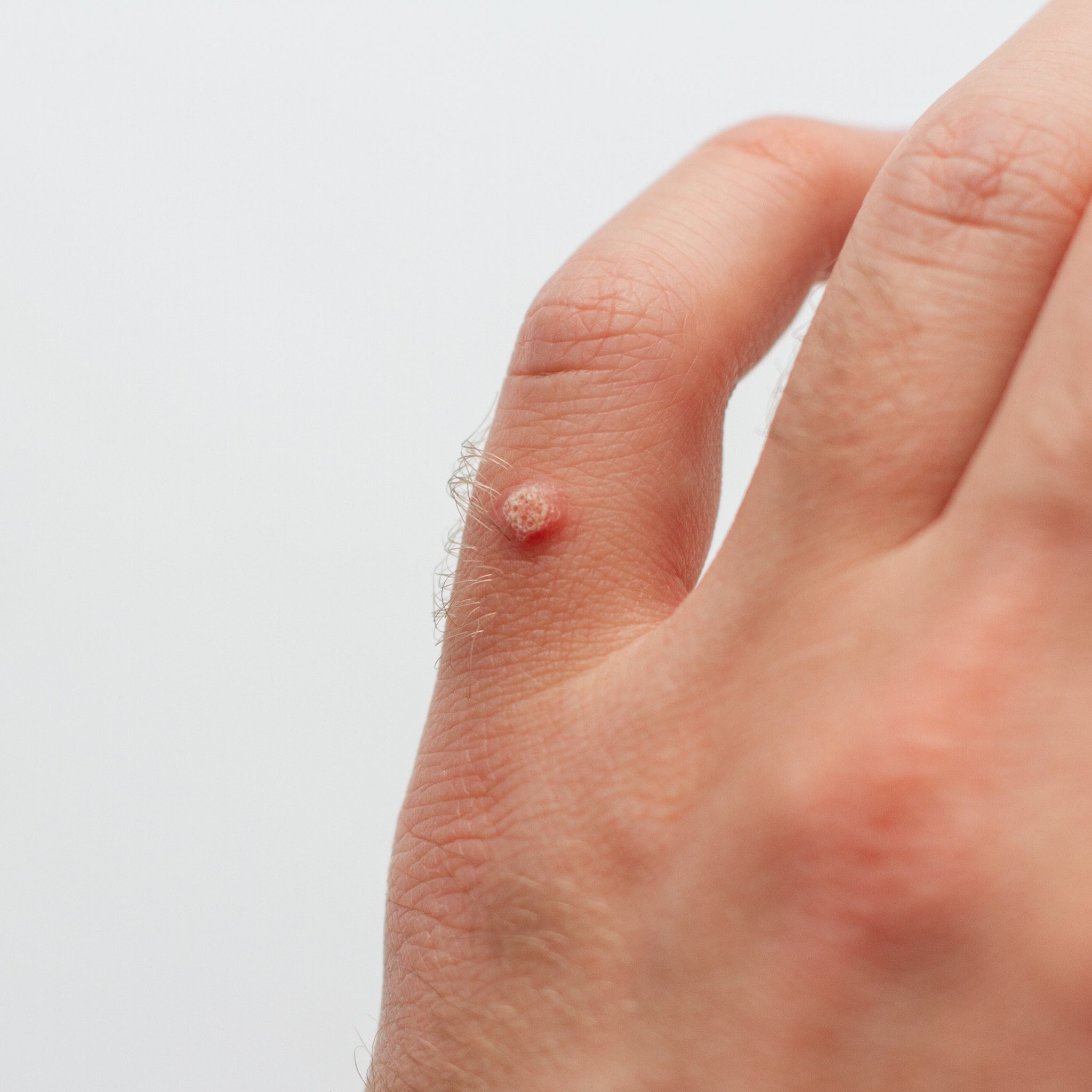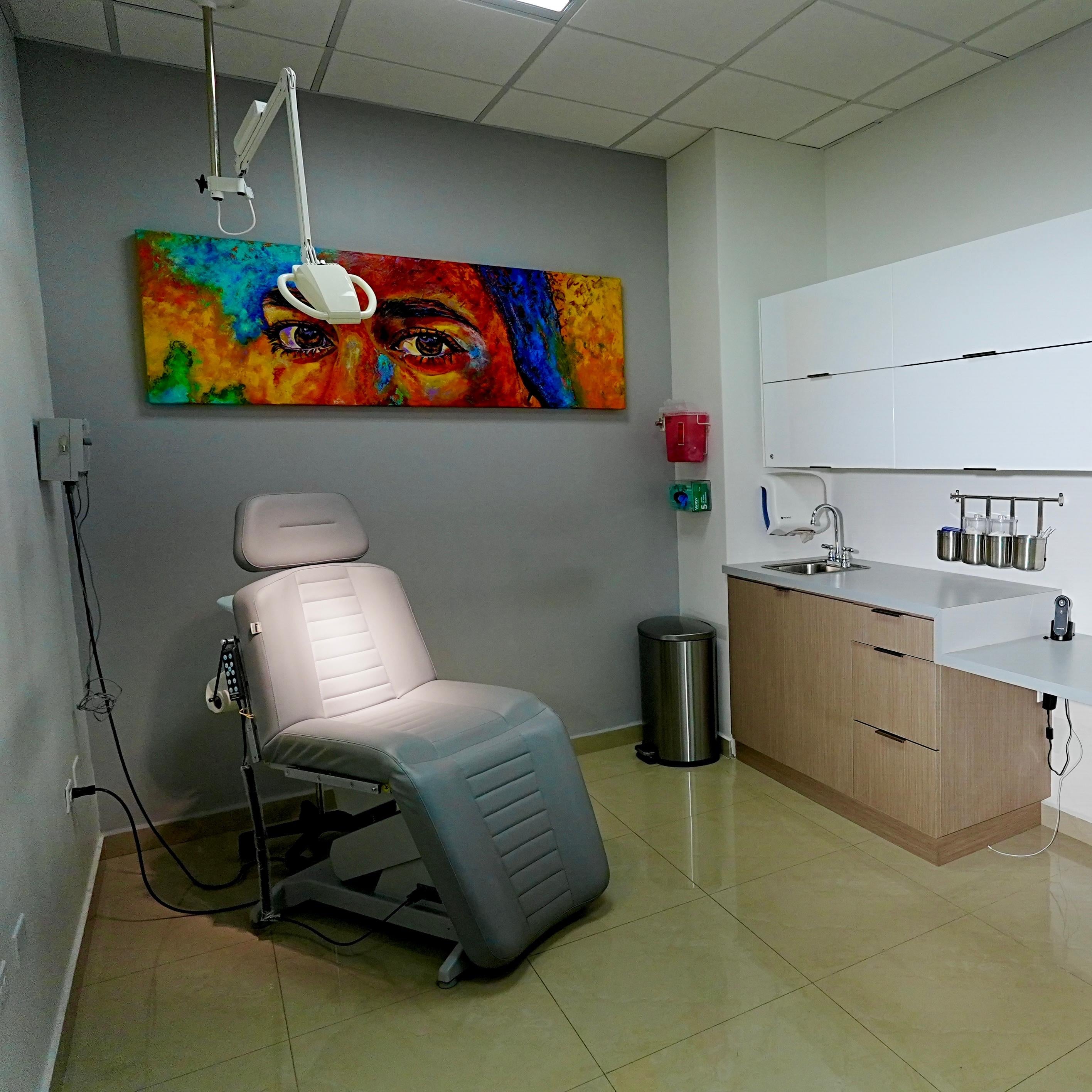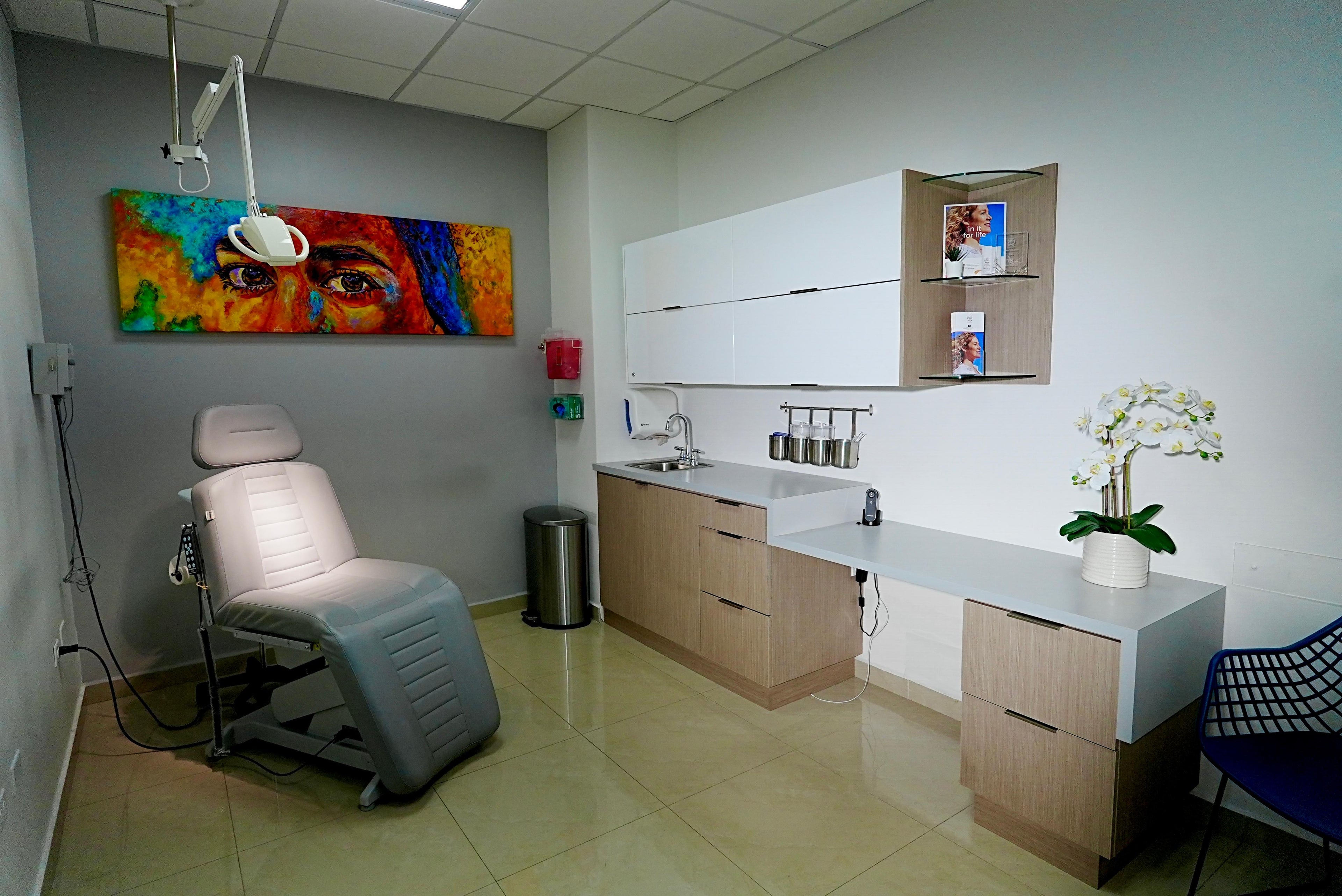Common Warts (Verruca Vulgaris)
Please note: This service is not available online. It is only offered in-person at our office. Schedule your appointment to experience expert care.
Common Warts (Verruca Vulgaris)
Common warts, also known as verruca vulgaris, are benign skin growths caused by an infection with the human papillomavirus (HPV). They can appear anywhere on the body, but they most frequently develop on the hands, fingers, and soles of the feet (plantar warts).
Characteristics:
- Appearance: Rough, raised, flesh-colored or grayish-brown bumps.
- Shape: Typically round or irregular.
- Size: Vary in size from a few millimeters to a centimeter or more.
- Black Dots: Often contain small black dots, which are actually thrombosed (clotted) capillaries.
Transmission:
- Direct contact with the wart.
- Indirect contact with contaminated surfaces (e.g., shared towels, shower floors).
- Autoinoculation (spreading the virus to other parts of the body by touching or scratching the warts).
Treatment Options:
- Topical Treatments: Salicylic acid (available over-the-counter), imiquimod (prescription).
- Electrocautery (Burning): An electric current is used to burn off the wart.
- Curettage (Scraping): A sharp instrument is used to scrape off the wart.
- Laser Therapy: Different types of lasers can be used to destroy wart tissue.
- Cantharidin: A topical blistering agent applied by a healthcare professional.
- Immunotherapy (e.g., Candin): Injections that stimulate the immune system to fight the virus.
Treatment with Cauterization and Candin:
Cauterization (electrocautery) and monthly Candin injections are treatment options for common warts. Candin works by stimulating the immune system to recognize and attack the HPV virus. These treatments are usually continued until the warts completely disappear. However, it's important to understand that because the HPV virus can remain dormant in the body, recurrence is possible.
Important Considerations:
- Warts are contagious and can spread to other parts of the body or to other people.
- Avoid touching or scratching warts.
- Good hygiene practices, such as frequent handwashing and avoiding sharing personal items, can help prevent the spread of warts.
- While treatments can effectively remove warts, they do not eliminate the virus from the body.
- A healthcare professional can recommend the most appropriate treatment option based on the location, size, and number of warts, as well as the patient's overall health.

How to Book This Service
Our professional dermatology services are provided exclusively in our Guaynabo office. Schedule your appointment today or contact us to learn more about how we can help you.
VISIT US
Professional Hospital, 9 Las Cumbres Ave, Suite 15, Guaynabo Puerto Rico 00971, United States
Mon - Thu, 7:45am - 4:45pm
Fri, 8:00am - 2:00pm
Sat - Sun, Closed


CONTACT US
-
EMAIL US
info@dermpr.store -
Call us
787-626-3431 -
Follow us


